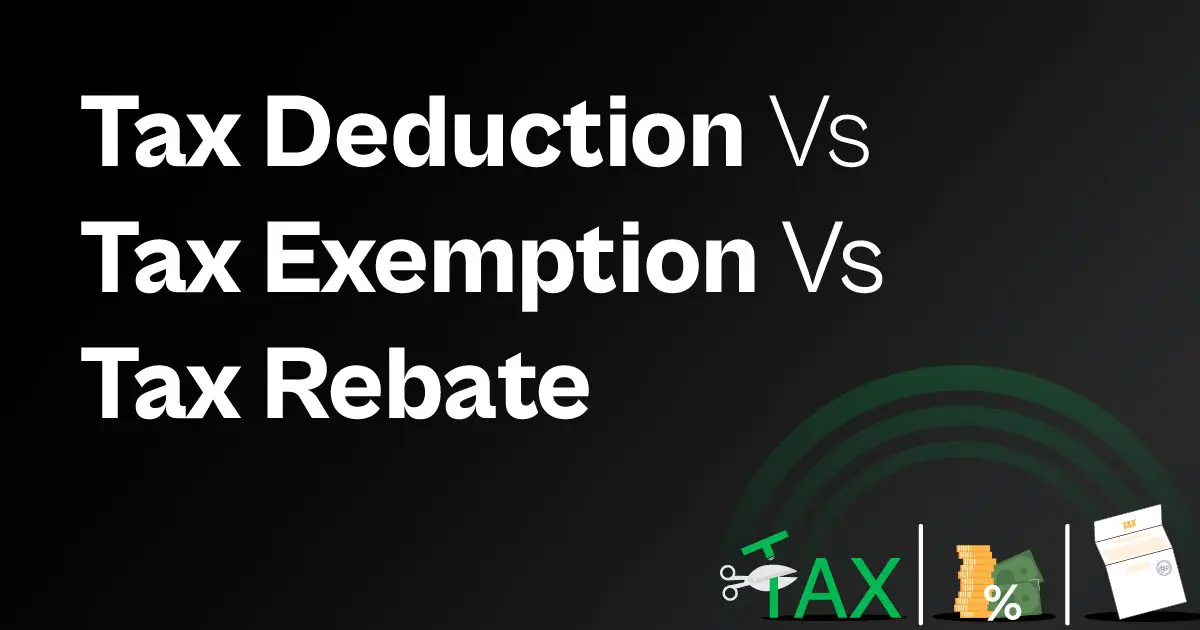New Delhi: Understanding the nuances of income tax can significantly impact your financial planning. Key concepts such as tax deductions, tax exemptions, and tax rebates play critical roles in determining your tax liability. Each of these elements functions differently, and grasping their distinctions is vital for effective tax management and maximizing your savings.
What is a Tax Deduction?
A tax deduction lowers your gross taxable income, thereby reducing the portion of your income that is subject to tax. Importantly, it does not directly lower the tax you pay but diminishes your overall tax liability by decreasing your taxable income.
Examples of Tax Deductions
1. Standard Deduction: A flat deduction of Rs 50,000 is available for salaried taxpayers under the old tax regime, while the new regime offers Rs 75,000.
2. Section 80C Deductions (up to Rs 1.5 lakh): This section includes various investments such as Public Provident Fund, Employee Provident Fund, and more.
3. Section 80D: Offers deductions for medical insurance premiums, with limits of Rs 25,000 for individuals and Rs 50,000 for senior citizen parents.
4. Section 80E: Covers interest on educational loans without an upper limit.
5. Section 24(b): Provides a home loan interest deduction of up to Rs 2 lakh per year.
For instance, if your annual salary is Rs 8 lakh, claiming a standard deduction of Rs 50,000 would bring your taxable income down to Rs 7.5 lakh. Additional deductions can further enhance tax savings.
What is a Tax Exemption?
Tax exemptions ensure that specific portions of your income are not subject to tax at all. Unlike deductions, which merely reduce the amount of taxable income, exemptions completely exclude certain types of income from taxation.
Common Tax Exemptions
1. House Rent Allowance (HRA): This can be partially or fully exempt based on the rent paid.
2. Leave Travel Allowance (LTA): Exempt for travel expenses incurred under specific IT rules.
3. Agricultural Income: Fully exempt under Section 10(1).
4. Gratuity Received: Tax-exempt up to a certain limit for salaried individuals.
5. Income of Senior Citizens: Exempt up to Rs 5 lakh annually.
For example, if your salary is Rs 8 lakh and you receive an HRA exemption of Rs 1.2 lakh, only Rs 6.8 lakh will be liable for taxation before applying further deductions.
What is a Tax Rebate?
A tax rebate directly reduces the actual tax payable after applying all deductions and exemptions. This form of tax relief is crucial for ensuring that you are not overpaying.
Example of Tax Rebate (Section 87A)
A rebate is available for taxpayers with a taxable income of up to Rs 7 lakh under the old regime, and up to Rs 12 lakh in the new regime, with a maximum rebate of Rs 12,500 under the old and ₹60,000 under the new tax regime.
For example, if your total taxable income under the old regime is Rs 5 lakh, your tax liability would be Rs 12,500. However, the Section 87A rebate would bring your final tax payable down to zero.
Tax Deduction vs. Tax Exemption vs. Tax Rebate: Key Differences
Understanding the distinction between these terms can greatly enhance your tax planning approach. Here’s a quick comparison:
| Feature | Tax Deduction | Tax Exemption | Tax Rebate |
|---|---|---|---|
| Definition | Reduces taxable income | Excludes certain income from tax | Direct reduction in tax payable |
| Applicability | Requires investment or spending | Automatically exempt based on income type | Available within specific income limits |
| Impact on Tax | Lowers tax indirectly | Completely ignores exempt income | Directly cuts down the final tax amount |
Smart Tax Planning Approach
To maximize your potential tax savings, you can adopt a systematic approach:
1. Claim the Standard Deduction: Rs 50,000 for salaried individuals.
2. Utilize Exemptions: Such as HRA and LTA.
3. Maximize Deductions: Invest in options like 80C, 80D, and 80E.
4. Check Rebate Eligibility: Under Section 87A.
By effectively employing tax deductions, exemptions, and rebates, you can substantially decrease your tax burden while ensuring compliance with the law. Achieving this balance not only increases your savings but also presents an opportunity to allocate funds better.
Tax planning may seem complex, but the rewards of understanding and effectively navigating these concepts can lead to significant financial advantages. Think of it as a game of financial chess—each move, or tax strategy, can lead to better outcomes if executed thoughtfully.
📲 Stay ahead in banking & finance!
Join the Bankerpedia WhatsApp Channel for instant updates, and
subscribe to our YouTube Channel for in-depth analysis and expert explainers.
Original source: www.etmoney.com










